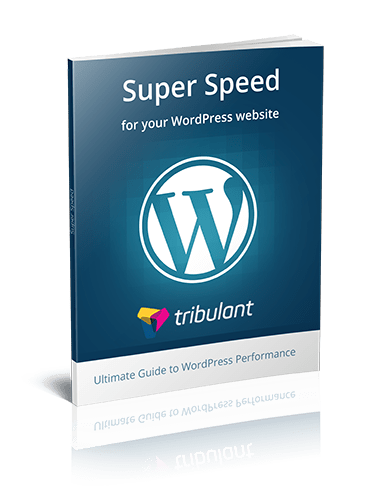
How Can a Good Web Hosting Provider Affect Your SEO?

If you have ever read a single article on digital marketing, you’ve probably come across the concept of SEO and gained a bit of understanding of how online searches function. Search engines deliver users the content which best fits their queries by using algorithms – various predefined principles of relevance.
At the same time, search engine optimization is all about making the content of your webpage match these criteria, with the goal of ranking well for relevant search terms, increasing your reach and traffic and bringing your content closer to your target audience.
Ideally, a well-optimized website will appear on the first page of Google’s results when the query is made, and this fact alone gives a major boost to its credibility, attracting 20% more traffic than the paid ad on the same page. This will result in better visibility for your site and your brand, more conversions, sales, and consequently – more profit.
What affects your SEO?
To rank well in Google and other search engines, the webpage needs to follow certain SEO criteria, which means:
- The website content needs to be relevant and well-optimized, using keywords, tags, and metatags.
- It needs relevant and high-quality links.
- It provides a great user experience and has high click-through rates and a low bounce rate.
Still, there is yet another important question experts in SEO, hosting and digital marketing break a lance with and can’t seem to agree on, and it’s whether web hosting influences the results of SEO efforts.
To all those wondering about this issue themselves, the short and simple answer is yes. If you want to find out more, here are some ways in which a good web hosting provider can indeed affect your SEO, by helping you achieve your goals much faster.
Is your web host location crucial?
You can get data you need from every little corner of the Earth, no matter where it’s located, but the quality of location where data is stored will influence the quality of the distribution. Webpage owners want to get the best service for their money, but they often fall victims of misconceptions and choose their hosting providers based on the location of their servers only.
Server proximity matters when you’re targeting a country-specific audience and putting your trust in the geo-IP location of your server to affect your rankings and the loading speed. While an IP address does play a significant role, most search engines allow website owners to set a target country in their webmaster tools and improve their rankings. On the other side, using a CDN service, which provides substitute server points, resolves the speed issue. So, when it comes to choosing a hosting provider, the quality of the web hosting provider should always prevail over the importance of the physical location of a server.
 Image by Free-Photos from Pixabay
Image by Free-Photos from Pixabay
Website availability
Your hosting provider needs to provide you a reliable service, as otherwise, your SEO rankings will suffer. This, for starters, means high network uptime and the ability to fix the problems as quickly as possible.
It is well known that Google uses crawlers to access your pages, scan their content in detail, and index them. These little robots use your sitemap to crawl through your website and follow links to other pages, bringing important data back to Google, so that it can direct the user to a relevant page upon the query. If your server is often down and your website has long downtimes, crawlers will have difficulties accessing it, and you’ll appear unavailable, which will result in poor search ratings. On the other hand, high uptime will boost your SEO rankings and increase your reputation as well.
Website speed
To offer your visitors optimal user experience and gain better SEO ratings, your loading speed needs to be high. 40% of your website visitors will abandon it and bounce if the loading time is longer than 3 seconds, and if it happens often, it is a clear “bounceback rate” signal to search engines that users are not satisfied. The crawlers will also have difficulty when indexing your pages, and you’ll have fewer shares and backlinks, again leading to poor ratings, pushing you out to the content graveyard.
Your loading speed depends on a few factors and with the help of some tweaking, you can significantly boost it. For example, you can modify a framework or a theme you use, optimize your homepage, compress the images, install a cache plugin and use a CDN.
But, to be able to deliver such speed, you’ll also need a really great hosting service you can rely on, with high-quality hardware and infrastructure, a stable connection, and 24/7 support. Using tools such as Page Speed Insights to keep an eye on your website loading speed and react in a timely manner, can do wonders for your website reliability and SEO rankings.
 Photo by Jean Gerber on Unsplash
Photo by Jean Gerber on Unsplash
Website security
Losing data due to a malicious attack or a natural disaster can be a disaster for the website owner too, as it will put an end to their SEO efforts to provide a good website reputation and visibility. That’s why when choosing a web hosting provider, the security of data must be taken into consideration.
There are several important things you should check with a hosting provider before making your decision:
- Whether the host offers SFTP to protect your data from being modified or intercepted.
- Whether the host has an SSL certificate, encrypting the communication between a browser and a server and protecting sensitive data such as credit card numbers.
- Whether the host backs up their servers regularly, and whether it offers tools to back up your data on your own as there are some situations when it’s important to have your own copy of all your files and data.
 Photo by Franki Chamaki on Unsplash
Photo by Franki Chamaki on Unsplash
It is always a good idea to check where your web hosting provider’s servers are located, and reduce the risk of data loss by avoiding the high-risk areas, prone to natural disasters, such as earthquakes, floods or fires.
Shared hosting
Many website owners don’t really think the hosting options through but go for the most affordable one and choose shared hosting, without being aware of all the limitations.
Shared hosting actually means that you’re sharing resources with other websites, and your loading speed and website’s availability are influenced heavily by the traffic on these other websites. This can be satisfying for the first month of doing business, but quite limiting when your business starts growing, and your shared host needs to handle some heavier traffic. If you don’t want your website to get sluggish and start lagging, pay a bit more and avoid shared hosting.
So, to make Google and other search engines work in your favor, it’s essential to meet their demands. Many of these demands are closely related to and influenced by the choice of a good web hosting provider, and they’re directly affecting our SEO rankings.
Bily Bum is an electrical engineer, tech, and gaming fan with 15 years of experience in the technology world. He is also a contributor on Technivorz.
Earn Money by Referring People
Refer customers to us with your affiliate link and earn commission on sales from your link.





No comments yet